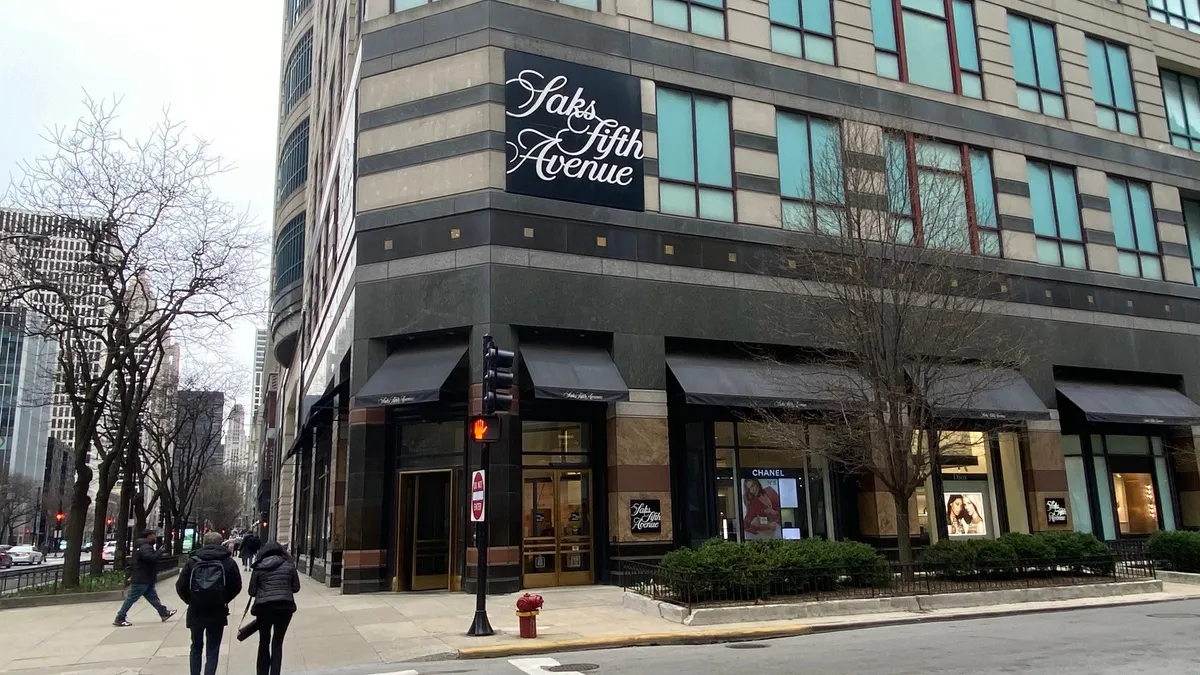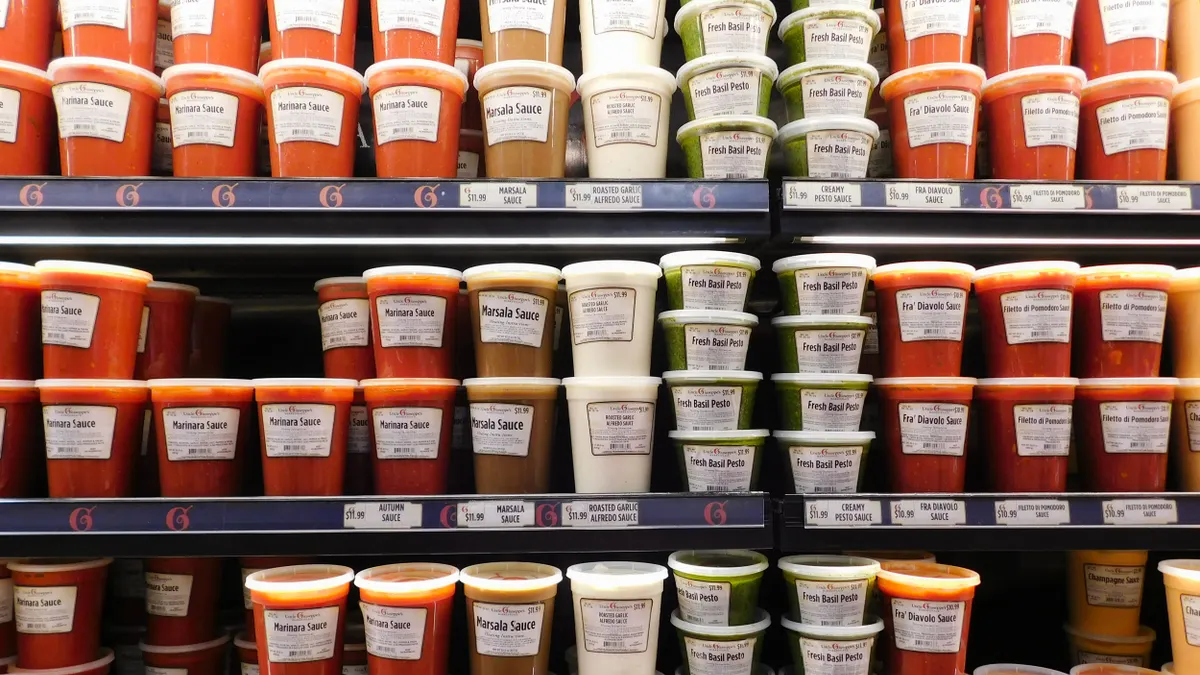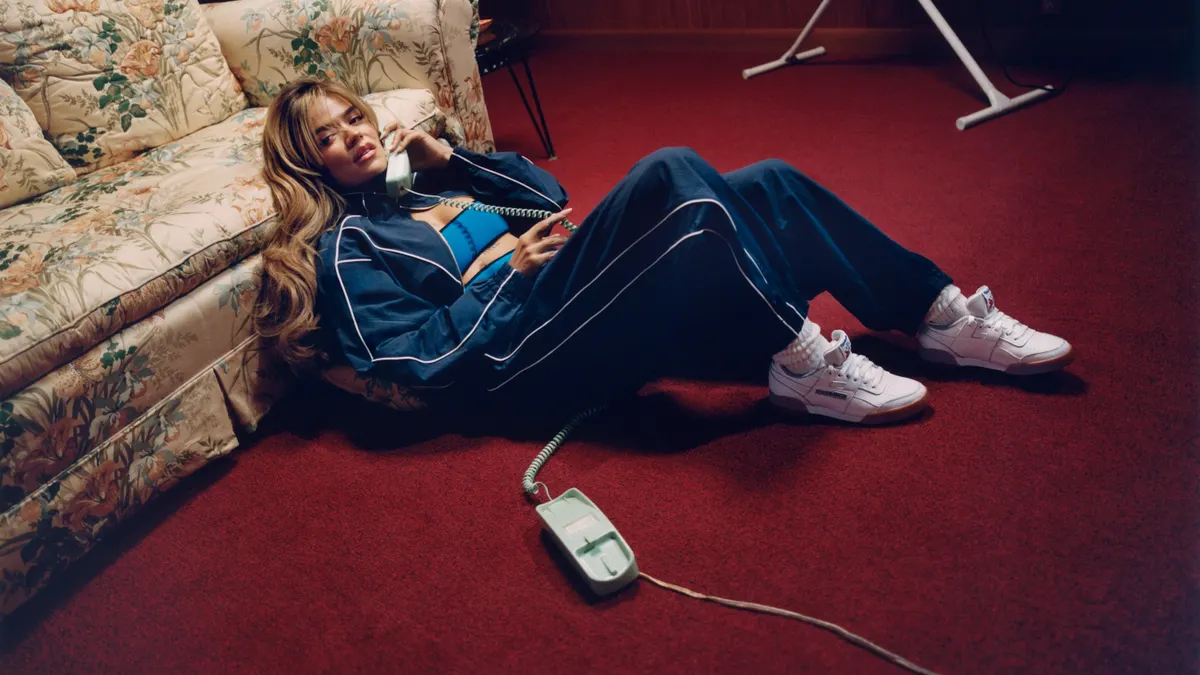Entering 2020, sustainability and the circular economy was poised to continue expanding in retail. However, as the coronavirus pandemic took hold, those environmentally focused ambitions were thrown into question.
Businesses have had to shift their attention to more immediate needs. For some, that means protecting their liquidity and subsequently drawing down on their revolvers.
"Concerns that were once dominant within the industry — from sustainable materials sourcing to carbon reduction to workers' rights — have been relegated to secondary considerations while businesses scramble to manage short-term economic distress," a joint report from Boston Consulting Group, the Sustainable Apparel Coalition and Higg Co said.
But sustainability goals haven't been put on ice for every company. Walmart last month partnered with resale site ThredUp to sell some 750,000 pre-owned items, including women's and children's clothing, accessories, footwear and handbags. The move follows similar partnerships made with the reseller from Madewell, Gap Inc., Macy's and J.C. Penney. The latter also recently launched a new bedding brand, Linden Street, which the company said was launched with sustainability in mind. The department store said the products are free of more than 300 harmful substances and feature packaging made with biodegradable labels and recycled polyester.
And Allbirds, which has always had a firm position in creating products that are better for the environment, recently inked a deal with Adidas with the hopes of creating a sport performance shoe with the lowest carbon footprint ever.
Remaining committed to sustainability goals, even amid COVID-19, might bode particularly well with younger shoppers. Gen Z, which tends to favor more environmentally conscious brands, also is the demographic most eager to return to stores once they reopen, according to a Sentiment Navigator survey cited by Adweek.
"This is a moment of truth for fashion industry players," Javier Seara, BCG managing director and partner, and global leader of the fashion and luxury sector, said in a statement regarding the BCG, SAC and Higg Co report. "Companies will need to change and are already changing their businesses (every day) to adapt to the new reality. Relentlessly incorporating sustainability practices into these changes will be the critical factor that separates winners from idlers."
The discussion forum on RetailWire asked its BrainTrust panel of retail experts the following questions:
- Has it become more important for brands and retailers to stick to sustainability commitments, despite the coronavirus outbreak?
- Will COVID-19 and the recession be a positive, negative or neutral factor in the progress of corporate sustainability programs?
Here are eight of the most insightful comments from the discussion. Comments have been edited by Retail Dive for length and clarity.
Retailers need to consider millennials and Gen Z
Paula Rosenblum, Managing Partner, RSR Research: I think the industry is still looking to Gen X and Boomers as its primary buyers. It is time to give serious thought to millennials and Gen Z. And they care a lot more about the environment.
In case no one has noticed, we are in the midst of a culture war. It's somewhat generational, somewhat demographic and economically based, but we are in it. However, as Bob Dylan once said "The old world is rapidly changing." I do believe the thoughtful among our young are getting a serious dose of "Humans do not have dominion over nature and it's time to respect her." That will include sustainability.
I think if a retailer is not making an effort to be color blind and environmentally aware, it's a dead man walking.
Sustainability will make a comeback
Lisa Goller, Content Marketing Strategist: 2020 shifted our priorities. While consumers still care about sustainability, companies face urgent issues like health, safety and solvency. Single-use straws and bags take a back seat amid layoffs and bankruptcies. Yet, over the medium to long term, sustainability will make a comeback as the economy recovers.
Pandemic creating a new normal of sustainable business practices
Andrew Blatherwick, Chairman Emeritus, Relex Solutions: While business will certainly be focused on saving itself, there have been many things the pandemic has taught us about how we can work without many of the practices that are bad for the environment. People will probably travel less for business now as we have all become accustomed to using online calls. Many businesses will look to establish supply chains closer to home, in part if not in total, and many consumers have learned to live without the disposable fashion items they used to buy. This may not be labeled as an ecological strategy but will take business in that direction while business is saving itself at the same time. These two things are not necessarily mutually exclusive and we will see many benefits coming out of the changes.
Retailers can't afford to go out of business
Kai Clarke, CEO, President, American Retail Consultants: Beggars cannot be choosers. When a business has to choose between survival or minimizing its environmental impact, most companies cannot afford the luxury of going out of business. In the short term, this is what we should expect. Longer term, we can have different discussions and manage different expectations.
'Companies clearly need to stabilize'
Mike Osorio, Vice President Retail, Tori Richard Principal, Osorio Group LLC: Short term, basic economics will pause some intended progress on sustainability commitments. Companies clearly need to stabilize. However, I believe that the previous growing collective consumer demand for sustainable practices will accelerate in the mid to long term. The surviving companies will meet consumer demand with innovations in design and production methods, supply chains, corporate transparency, and more. Impacts from COVID and Black Lives Matter cultural shifts will produce accelerated shifts toward sustainable business practices among retailers and suppliers.
Apparel has the most sustainability goals, but is also the hardest hit
Suresh Chaganti, Co-Founder and Executive Partner, VectorScient: It is not surprising, though I hope environmental initiatives will return to being considered. Fashion, which is one of the biggest contributors to environmental damage and has the most visible initiatives planned, is also the area most hit by the pandemic. When it is a fight-or-flight situation like it is now, it is not surprising where the mindshare and wallet share would go.
'We can't afford to lose focus'
Dave Bruno, Director, Retail Market Insights, Aptos: While we all need to focus on business survival in the short-term, climate change is one of the risk factors for future pandemics. We can't afford to lose focus on this critical issue and, hopefully, consumers will push retailers to stay focused.
Sustainability initiatives will come out on top
Stephen Rector, Founder, President, Bakertown Consulting: For retailers to pull back on their sustainability initiatives due to COVID-19 is not a smart move. I believe that there will be a positive push going forward for sustainability programs and the brands that push the farthest will be the winners.























